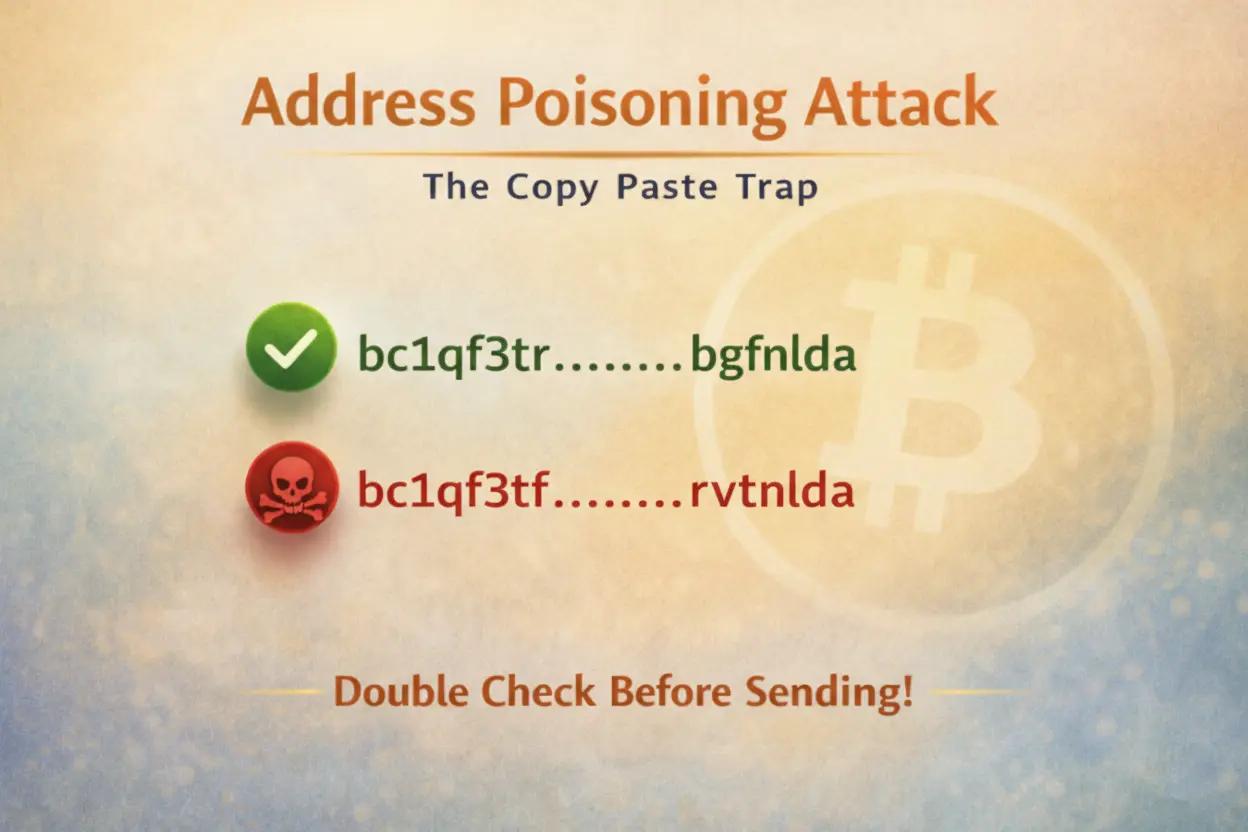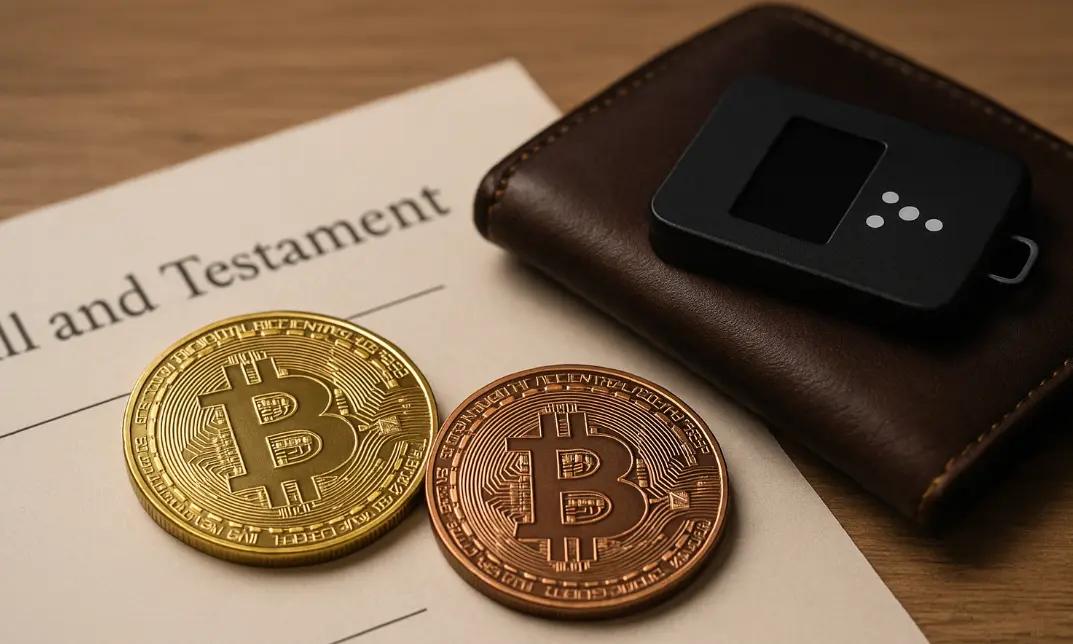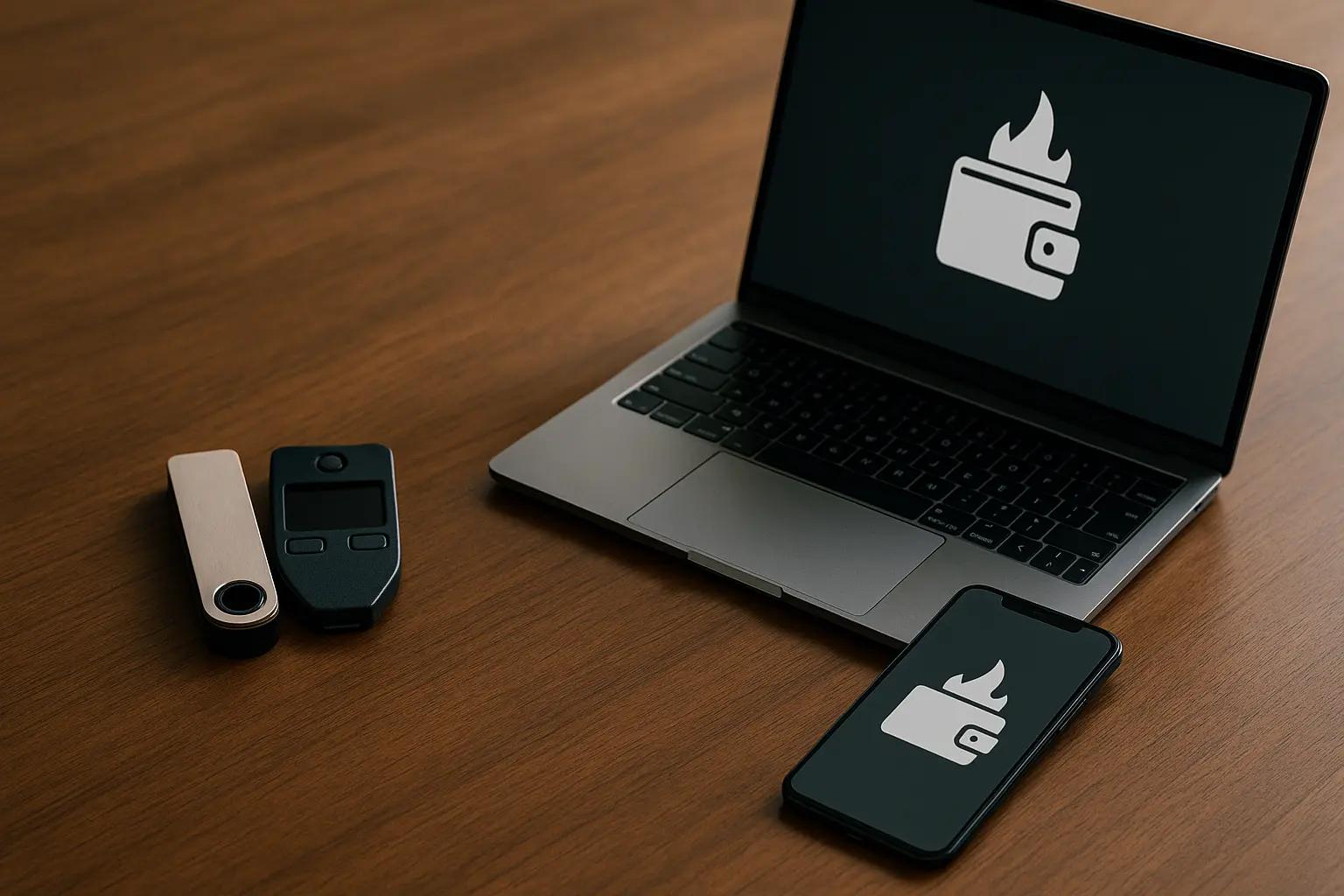BLOG
Never Share Your Private Keys
Your seed phrase is the master key to your Bitcoin, Ethereum, and digital assets. Sharing it, even with trusted people, can lead to irreversible loss. This blog explains why self-custody matters, how mistakes and changing relationships can compromise your crypto, and introduces smarter, safer ways to handle inheritance without exposing your keys. Stay private, stay secure.

Why You Should Never Share Your Seed Phrase, Even With Loved Ones
In the world of cryptocurrency, your seed phrase is everything. It is not just a recovery tool or technical detail. It is the master key to your Bitcoin, Ethereum, NFTs, and every token stored in your wallet.
Naturally, people want to prepare for emergencies. Many consider sharing their seed phrase with a partner, sibling, or close friend “just in case something happens.” It feels like the responsible thing to do.
But in the realm of self-custody and blockchain-based assets, sharing a seed phrase can have serious and irreversible consequences. Even with the best of intentions, a single mistake or a shift in circumstances can lead to total loss.
If you want to keep your crypto safe and still plan for the future, there are better ways. Let’s explore why you should never share your seed phrase, and what smarter alternatives exist for managing crypto inheritance.
1. Your Seed Phrase Equals Total Control
A seed phrase is not just a backup. It is a complete access key to your cryptocurrency holdings. Anyone with access to it can:
- Transfer your Bitcoin or Ethereum to another wallet
- Sell or destroy your NFTs
- Move every token you hold to a new location
- Lock you out of your own assets permanently
Think of it like giving someone the keys to your home, your bank account PINs, and the deed to your house, all at once. But here’s the catch: in crypto, there is no locksmith and no customer service line to call. Once a transaction is made, it cannot be reversed. There are no chargebacks on the blockchain.
Sharing your seed phrase means giving away full control with no safety net. If the person you trusted misuses it, or if it falls into the wrong hands, you have no recourse.
2. Trust Doesn’t Prevent Accidents
You may trust your loved one completely. But trust does not protect against honest mistakes. Even well-meaning people can put your assets at risk without realizing it.
Consider these common real-world examples:
- They store your seed phrase in a notes app on their phone. Later, that phone is stolen.
- They back it up to cloud storage for convenience. The cloud gets hacked.
- They email it to themselves as a backup. Their email is compromised in a phishing attack.
- They write it on paper and accidentally throw it away or leave it somewhere public.
The blockchain does not evaluate intent. It only processes valid transactions. Whether your seed phrase was leaked by accident or stolen through negligence, the result is the same: your assets are gone.
Human error is the most common cause of loss in self-custody crypto ownership. Sharing your seed phrase increases the number of people who can make that mistake.
3. Relationships Change Over Time
Trust is not a constant. Even the strongest bonds can shift over the years. Romantic partners separate. Family members fall out. Financial stress can lead people to make decisions they would not have considered before.
If someone has your seed phrase, your digital assets become vulnerable to these changes.
- A breakup could turn into a legal dispute.
- A family member facing debt might be tempted to access your funds.
- Even someone with good intentions could share the phrase with others without understanding the consequences.
Relying on a stable relationship for long-term custody of your crypto assumes that relationship will never change. That is a risky assumption to make, especially when Bitcoin, Ethereum, and other crypto holdings often represent significant value.
True self-custody means keeping control regardless of shifting personal dynamics.
4. Sharing a Seed Phrase Is Like Leaving a Loaded Gun on the Table
A seed phrase, in the wrong hands, is not just a vulnerability. It is a fully loaded mechanism of irreversible action.
Imagine handing someone a firearm and saying, “Only use this if there’s an emergency.” They might never touch it. But what if someone else finds it? What if they panic and use it at the wrong time? What if it’s used before the emergency actually happens?
This is what sharing a seed phrase can become. It is an invitation to disaster, even if no one intends harm.
You cannot partially share access to a seed phrase. There is no read-only mode. There is no limited access. It’s all or nothing.
This is why secure planning requires something better than shared secrets. It requires systems that activate only under the right conditions, without exposing keys ahead of time.
5. Smarter Crypto Inheritance Without Exposing Keys
Fortunately, there are better ways to plan for your digital legacy. Secure crypto inheritance tools are now available that allow for long-term asset transfer without needing to share your seed phrase.
These systems are built around decentralized logic, cryptographic proof, and activity monitoring. One such solution is BitInPeace, a platform designed specifically for crypto inheritance without compromising self-custody.
It works like this:
- As long as you are alive and active, nothing changes. You retain full control of your wallet.
- The system monitors for wallet activity and sends check-in reminders over time.
- If no response is detected and no blockchain activity is observed for a specified period, the system initiates a pre-signed inheritance plan.
- Your assets are delivered according to your instructions—without revealing your seed phrase to anyone.
This kind of system combines automation, privacy, and responsibility. You stay in control until you’re no longer able to be. And your loved ones receive what you intended, with no guesswork, no legal complications, and no security compromises.
Best of all, your seed phrase remains unexposed and unshared—exactly as it should be.
6. Crypto Inheritance Requires a New Kind of Planning
Bitcoin and Ethereum have changed how people think about money. But with that change comes a new level of responsibility.
Traditional estate planning is handled through lawyers and banks. In the world of crypto, you are your own bank. That means you need a plan that matches the technology.
This includes:
- Never writing your seed phrase in insecure locations
- Never sharing it with family, friends, or partners
- Using tools that respect self-custody while enabling responsible inheritance
The goal is not to keep your wealth secret forever. The goal is to keep it secure until the time comes to pass it on.
With proper tools and planning, you can ensure that your loved ones receive your crypto assets, even if you're no longer here to guide them. But that does not require sharing your seed phrase. In fact, doing so is the biggest risk you can take.
Final Thoughts: Your Seed Phrase Is Yours Alone
If you value your privacy, your digital legacy, and your loved ones, never share your seed phrase. No matter how close the relationship or how good the reason, it is not worth the risk.
Instead, rely on systems that reflect the nature of crypto itself, automated, secure, and designed for self-sovereignty. Use solutions like BitInPeace, which let you prepare for the future without ever giving up control.
Keep your seed phrase private. Keep your assets safe. And let the right tools take care of the rest when the time comes.
You can explore how it works at:
Related Reads about Security

Address Poisoning Attack Explained: Copy Paste Trap

Address poisoning attacks trick you into sending crypto to the wrong wallet by inserting a lookalike address into your transaction history.
BitInPeace Team
February 1, 2026

Crypto Inheritance vs. Multisig

A clear comparison between crypto inheritance platforms and multisig wallets. Learn what works best for securing your crypto.
BitInPeace Team
May 28, 2025

Cold vs. Hot Wallets for Inheritance

Discover the best crypto wallet types for inheritance planning and how to secure your legacy with cold storage and smart, automated transfer tools.
BitInPeace Team
May 18, 2025